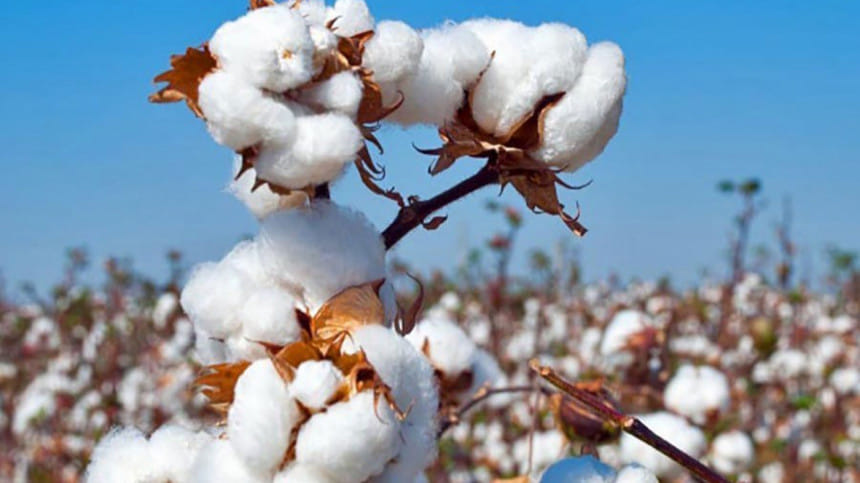Cotton import likely to drop

Bangladesh's cotton imports are likely to drop in the marketing year 2023-24 beginning from August because of lower consumption, said the US Department of Agriculture (USDA) last week.
Cotton imports by mills may decline to 77 lakh bales in the current marketing year, down by nearly 4 percent from last month's forecast of 80 lakh bales, said the agency in its latest report on world markets and trade of cotton.
The reduced consumption of cotton by Bangladesh, the second largest garment exporter after China, is forecasted to cause a decline in global trade.
The USDA said global cotton trade may drop roughly 600,000 bales from the previous month to 4.33 crore tonnes as consumption was lower in most major importing countries, especially Bangladesh and Vietnam.
The USDA said global cotton trade may drop as consumption was lower in most major importing countries, especially Bangladesh and Vietnam
Bangladesh's cotton use may fall to 77 lakh bales in the current marketing year.
"We cannot operate our mills fully due to energy problem. For example, factories in Gazipur area run at 60 percent of their capacity," said Mohammad Ali Khokon, president of Bangladesh Textile Mills Association (BTMA).
"Dollar crisis is another factor to blame. Because of dollar shortage, many cannot import required amount of cotton due to problems in opening letters of credit. The rate of dollar is also high," he said.
Last month, the USDA projected that Bangladesh's cotton consumption would rise 10 percent year-on-year to 80 lakh bales due to burgeoning apparel exports in fiscal year 2023-24.
It said Bangladesh was close to surpassing China as the world's largest cotton apparel exporter and stronger demand prospects were expected to drive cotton consumption higher.
Bangladesh's factories mostly make cotton-based garments and more than 70 percent of export shipments are comprised of cotton items, according to industry operators.
Jahangir Alamin, a former president of the BTMA, said he partly agreed with the USDA's latest forecast on Bangladesh's consumption decline and partly disagreed.
"Spinners are slowly diversifying to making man-made fibres such as viscose and others. This is because of increasing demand for man-made fibre-based apparel," he said.
"Overall, the global economic situation and high inflation in Bangladesh has had a dampening effect on requirement for yarn," he said, adding that demand for yarn fell in the last Eid-ul-Fitr festival, the largest shopping season in Bangladesh.
All these factors have affected imports, said Alamin, also chairman of Shamsul Alamin Group.

 For all latest news, follow The Daily Star's Google News channel.
For all latest news, follow The Daily Star's Google News channel. 






Comments